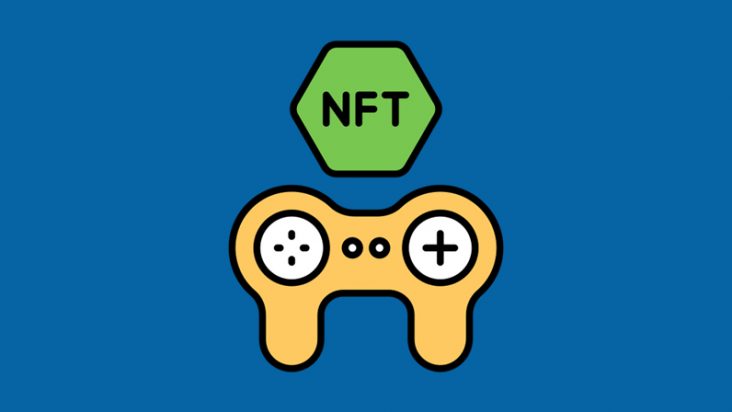Using Data Analytics to Promote Responsible Gambling in iGaming

The Materials section is a rich resource for individuals and organizations with a focus on data.
With thoughtfully curated articles, timely data releases, and a store stocked with ready-to-use data sets, this section caters to your data needs, empowering you to succeed in the dynamic world of data.
Our company information section provides comprehensive information about our services, pricing, team information, and contact details.
We aim to provide our visitors with all the information they need to make informed decisions about our services and build a strong relationship with our team.

In the rapidly evolving iGaming industry, understanding player behavior is essential for enhancing responsible gambling practices and fostering sustainable business growth. By leveraging data analytics, B2B providers can identify problematic gambling patterns, segment player behaviors, and deploy tools that predict and mitigate risky actions. This article explores how cutting-edge solutions, including machine learning, are being applied to promote safer gambling environments.
B2B solutions now offer sophisticated data analytics tools that monitor and analyze player activity in real-time. These tools process vast amounts of player data—including deposit frequency, session duration, wager amounts, and loss patterns—to detect anomalies that may indicate risky behaviors associated with a problem gambling.

Advanced algorithms analyze player activity to flag specific patterns, such as excessive gambling sessions, unusual betting spikes, or rapid losses. For example:
Excessive Gambling Sessions: Real-time systems track session durations. When players exceed standard benchmarks or show a decline in breaks, this behavior is flagged as a potential gambling problem. Operators can then intervene to prevent problem gambling from escalating.
Unusual Betting Spikes: Sudden increases in wager amounts can indicate players chasing losses or erratic spending habits. By analyzing these anomalies, operators can ensure players keep gambling responsibly.
Rapid Losses: Frequent, significant losses within short timeframes trigger alerts, allowing operators to take action before players develop harmful habits.
Automated systems generate tailored alerts for both players and operators. For players, notifications serve as reminders to take breaks, set limits, or review their behavior. Operators are simultaneously informed of risky trends, ensuring transparency and timely engagement. These measures help mitigate the risks of problem gambling while preserving the integrity of the gaming experience.
By identifying problematic patterns early through data analytics, operators can implement personalized strategies to support at-risk players. Tools such as spending caps, self-exclusion options, and direct communication channels empower players to keep gambling safely and responsibly.
In conclusion, the integration of data analytics in modern B2B solutions ensures that gambling platforms can detect risky behaviors, address gambling problems, and promote a safer, more enjoyable gaming environment. Through real-time monitoring, automated alerts, and proactive interventions, operators can reduce the prevalence of problem gambling while maintaining player trust.
Player segmentation is a powerful tool that allows operators to categorize players into different groups based on their behavior, preferences, and risk levels. Using advanced behavioral insights, operators can:
By segmenting players and understanding their specific needs, operators can implement more effective strategies to promote safer gaming practices.
Machine learning is revolutionizing the way B2B providers address problem gambling. Predictive models powered by AI analyze historical data to identify trends and predict future behaviors. Key applications include:
Machine learning not only enhances the accuracy of risk detection but also enables real-time, automated responses that can assist vulnerable players immediately.
A leading B2B platform implemented a real-time analytics system that monitored player behavior and flagged risky patterns, such as sudden increases in betting frequency or losses. The operator introduced automated alerts for both players and support teams, resulting in a 20% reduction in high-risk gambling activity.
A B2B provider utilized machine learning algorithms to analyze historical player data. By identifying key risk indicators, such as irregular wagering patterns and extended play sessions, the system predicted potential problem gambling cases with 85% accuracy. As a result, operators could proactively engage at-risk players with tailored support tools.
Using behavioral insights, a platform segmented its player base into low, medium, and high-risk categories. The high-risk group received targeted notifications promoting deposit limits and self-exclusion options. This approach not only increased player trust but also reduced excessive gambling behaviors by 15%.
Understanding player behavior through data analytics, player segmentation, and machine learning is transforming the iGaming industry’s approach to responsible gambling. By identifying problematic gambling patterns, tailoring interventions for at-risk players, and using predictive models, B2B providers can play a critical role in mitigating risks and promoting a safer gaming experience. As data-driven technologies continue to evolve, the industry has a unique opportunity to balance profitability with social responsibility, ensuring that players remain engaged without harm.

Web3 games have evolved from being new and largely speculative projects focused on short-term earnings to more mature ecosystems, where blockchain serves both as a financial incentive and as a […]

In the world of Web3 games, the idea of Play-to-Earn has long been perceived as a revolution: players could receive real tokens for in-game activity. In practice, it has become […]

While many Web3 projects remain stuck in a perpetual alpha or beta phase for years, Korean gaming companies continue to regularly release large-scale MMORPGs, relying on well-established development processes and […]

Many modern Web3 projects, especially metaverses and blockchain games, remain in beta testing for years: the team publishes frequent status reports, releases regular updates, promises major releases, yet a full-scale […]

The gaming industry is a form of mass culture, where players have a wide range of abilities. Accessibility is not a “checkbox feature” but a fundamental part of product design: […]

Initially, the term P2E (Play-to-Earn) was primarily associated with token farming: players in Web3 games received rewards simply for spending time in the game, usually through “token farming + selling […]